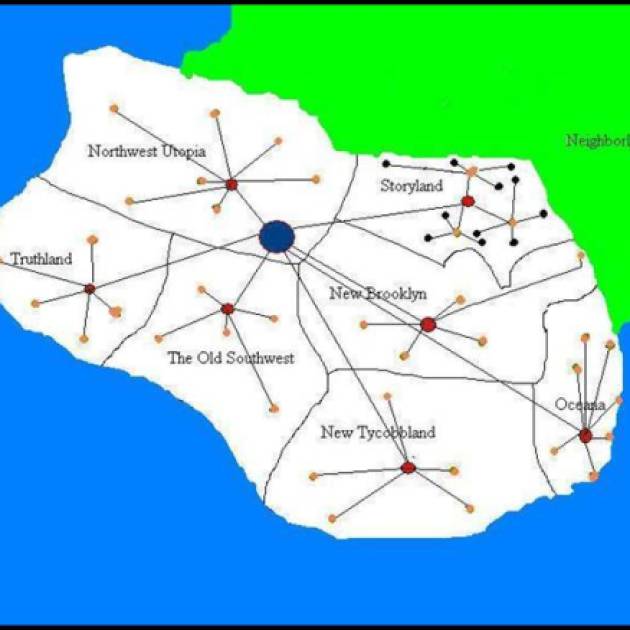- Probably, the community will have to monitor the extent of each economic actor’s consumption of (i) fresh water, (ii) land, (iii) contributed human labor in excess of what is done by economic actors to further their own private interests, and (iv) the emergy of manufactured objects. This will be necessary until a generation of citizens is born that recognizes the importance of minimizing consumption. Thus, the economy is consumer-planned subject only to the consumer’s responsibility (a) to use no more than 1/Nth of the sustainable fresh water, 1/Nth of the land that has not been set aside as part of the commons or is otherwise inviolable, and 1/Nth of the hours of human labor contributed to the common pool by people who have done more labor than what they require for their private interests, such as their households, and 1/Nth of the sustainable production of manufactured items (measured in emergy units) where N is the number of consumers and (b) to reproduce himself or herself only, to pass on his reproductive rights to another, or not to reproduce. Probably violators will have to be sterilized (painlessly) along with the excess child. This policy will be resisted rather vigorously, I suppose, and for good reason, but what else can be done?
- Local economic enterprises owned by workers in the sense of custodianship. Decisions are made by direct vote – one worker, one vote. It is important that worker ownership not extend beyond the premises of the plant where the work is done. Decentralization not incorporation. Each enterprise integrates the plans of its consumers into a total economic plan for the enterprise and notifies its suppliers accordingly. This must be achieved with negligible energy costs, probably with a computer. The economic actor might organize his or her personal emergy budget well in advance, also with a computer.
- Public servants chosen quasi-randomly, somewhat as jurors are chosen2, for limited terms that cannot be followed by another such appointment. Recall is by direct vote of all members of the community whom I call citizens for lack of a better term. The term fractal government denotes a system of small communities wherein every citizen belongs to a local parliament that is tied in a loose federation with other such communities in similar parliaments that are tied in loose federations to other parliaments of parliaments.This is similar to fractal structures, except that a loose federation of the world can have only a finite number of sub-levels, as does every representation of a fractal in the real world. Among a very small number of public servants are the members of local communities who sit in the parliaments that determine public policy for the community’s eco-region, which randomly selects members of itself who make policy for a collection of eco-regions. And so on. Every one of these “members of parliament” is subject to immediate recall by the direct vote of the body that chose him or her. Thus, the only permanent members of the government are the people themselves who share political power at the community level in the sense of one-person-one-vote. Naturally, some people will have more influence than others if they are widely respected; but, they cannot convert this influence to greater wealth. Ultimately, this arrangement should evolve into no government at all.

Figure 1. Fractal

Figure 2. Fractal Political Structure
- The Fundamental Principle of Neighborliness in dealing with neighboring communities, so that the dependence of economic well-being on geography is minimized. (Wealth flows always from richer communities to poorer communities or not at all.)
- Defense by citizen militias if necessary. The decision to bear arms is up to the citizens.
- It is recognized that the federal government is likely to suppress any effort to form an intentional community (or reform an existing community) along egalitarian lines, i. e., with a Natural Economy, unless collapse has already commenced, in which case the federal government will no longer be able to function because the most powerful people in government will have given up in despair and will be trying to save themselves – at least Dmitry Orlov has made a good case for this in “Closing the Collapse Gap”, which compares the collapse of the Soviet Empire with the very likely collapse of the United States American Empire.
